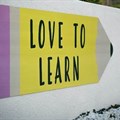Transforming professional development through lifelong learning

As someone who completed a PhD while working, I’ve seen how continuing education not only enhances professional skills but also promotes personal growth. Lifelong learning is more than just acquiring new knowledge, it’s about embracing different perspectives, overcoming limitations, and evolving in ways that influence both your career and personal life.
A new career model: From stability to flexibility
The old career model, where people stayed in the same job or industry for life, has become outdated. Today, professionals move between various roles and sectors throughout their careers. This flexibility requires ongoing personal and professional development, and continuing education provides the tools to stay current.
Programmes designed for working professionals offer the flexibility to learn new skills while maintaining their jobs, helping them manage the demands of work and education. This balance is essential in a competitive environment, where people need to incorporate learning and growth into their daily lives.
Continuing education as a source of growth
Continuing education goes beyond merely staying informed about industry trends; it promotes deeper personal and professional growth. It develops not only technical expertise but also critical thinking, leadership, and problem-solving skills, all of which are highly valued in today’s workforce.
Balancing the demands of work with the pursuit of a PhD was both challenging and enriching. It taught me resilience, time management, and strengthened my passion for healthcare management. This experience highlighted that education is not just about mastering a subject; it’s about personal development, expanding your view of the world, and continually improving your leadership and problem-solving skills.
Lifelong learning gives professionals the opportunity to reinvent themselves, explore new career paths, and take on leadership roles they might not have considered. It empowers individuals to refine their goals and contribute meaningfully to their industries and communities.
Defining success in personal terms
Success today is no longer defined solely by titles or income. For many, it is about personal satisfaction, work-life balance, and having a positive impact on their organisations and society. Continuing education offers the flexibility to align careers with shifting personal goals and values.
For me, earning a PhD was about more than advancing my career — it was about deepening my understanding of the subjects I’m passionate about and contributing meaningfully to the field of healthcare management. I encourage all professionals to consider how ongoing learning can help them shape their careers around their personal values and aspirations.
New career opportunities through learning
One of the most exciting aspects of continuing education is the wide range of new career opportunities it opens. Professionals often begin their education with the aim of improving their current roles, only to discover new career paths as they gain additional knowledge.
For example, those pursuing executive education may find they are ready to take on leadership roles or change industries. Others, like myself, develop a deeper interest in research or a stronger commitment to making a difference in their chosen field. Whether through degree programmes or short courses, continuing education equips professionals with the skills they need to take charge of their careers.
Agility and adaptability as success factors
The most successful professionals today are those who can adapt quickly, learn new skills, and apply their knowledge in practical ways. Continuing education plays a crucial role in fostering this adaptability, allowing professionals to keep up with industry developments and be ready for the challenges ahead.
Flexible, practical education enables learners to apply new insights directly to their jobs, ensuring they stay agile and prepared to lead during times of change.
Lifelong learning: The key to sustainable success
As industries change and new challenges arise, the importance of lifelong learning continues to grow. For professionals aiming to stay ahead, continuing education offers the tools to remain competitive, take on new roles, and keep developing. Lifelong learning is not just a professional necessity, it is also a deeply rewarding personal experience.
By committing to continuous learning, professionals can redefine success in ways that matter to them. This allows them to evolve throughout their careers while staying aligned with their values and aspirations. Through this approach, individuals can discover new opportunities, build resilience, and make lasting contributions to their fields and communities.



































